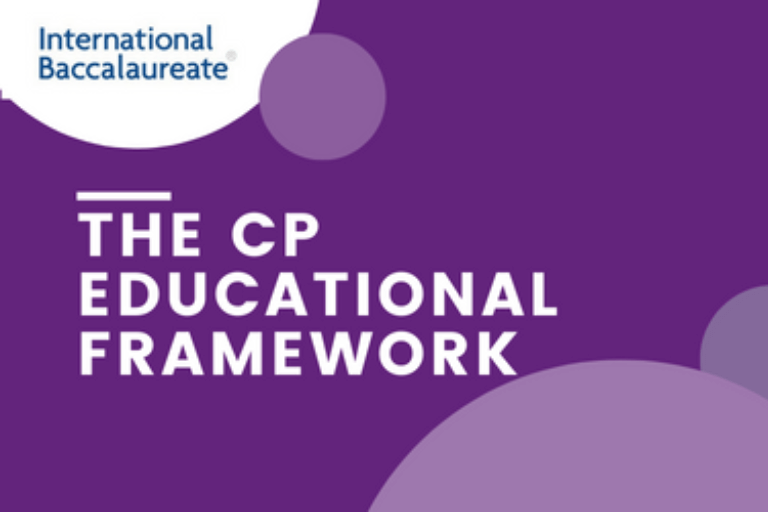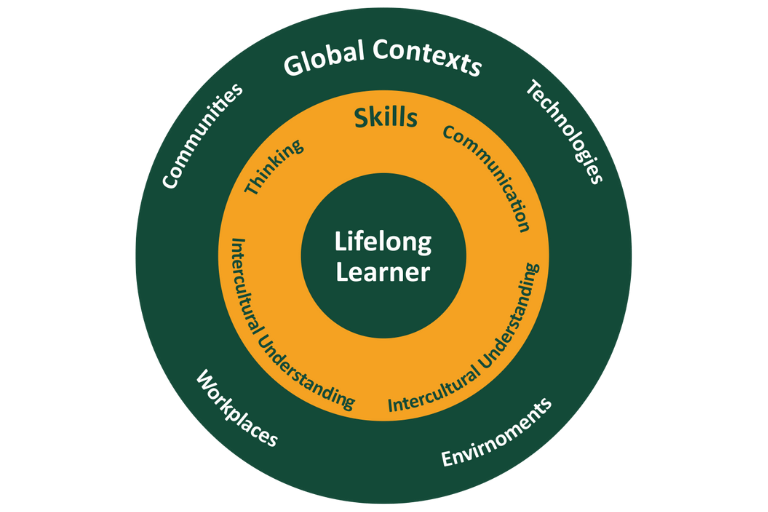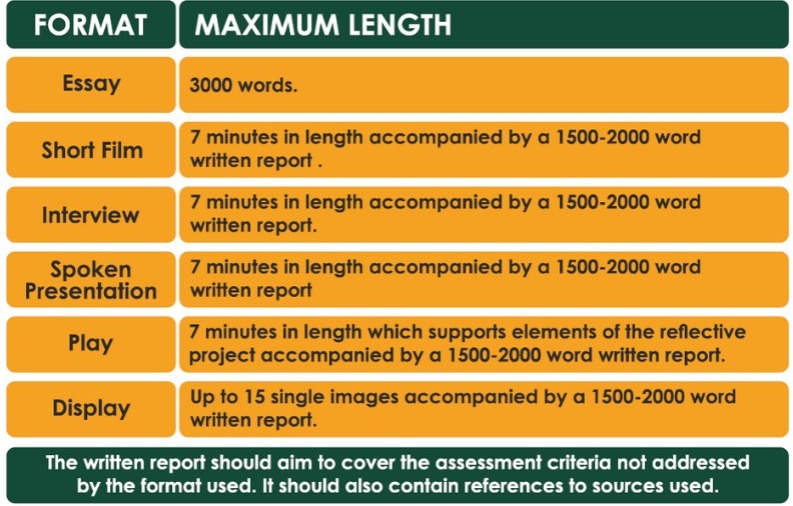

Personal Professional Skills is a professional ethical thinking course which explores the ethical context of the career-related study and its implications in the real world.
The course aims to develop transferable skills with an emphasis on the nature of thinking critically and ethically and being able to communicate effectively. The Key Skills covered range from personal development, intercultural understanding, thinking and communication.
The course also explores global contexts through the following broad themes:
The personal and professional skills course (PPS) is a compulsory component of the Career-related Programme (CP) core. Personal and professional skills are designed for students to develop attitudes, skills and strategies to be applied to personal and professional situations and contexts now and in the future. In this course, the emphasis is on skills development for the workplace, as these are transferable and can be applied in a range of situations. Personal Professional Skills is a professional ethical thinking course which explores the ethical context of the career-related study and its implications in the real world. The course aims to develop transferable skills with an emphasis on the nature of thinking critically and ethically and being able to communicate effectively. The Key Skills covered range from personal development, intercultural understanding, thinking and communication.
Other qualities the course develops include:
The overall aims of personal and professional skills are for the students to:
Through service learning, students will develop working relationships with the community.
The aim of service learning are for students to:
They will explore the Principles of Service Learning:

Service learning is a component of the Career related Programme core. Service learning provides opportunities for students to understand their capacity to make a meaningful contribution to their community and society. Through service learning, students develop and apply academic knowledge, personal skills and social skills in real-life situations involving decision-making, problem-solving, initiative, responsibility and accountability for their actions. The purpose is for students to contribute to society by improving the lives of people or assisting the environment or animals.
The reflective project is one of the four compulsory components of the IB Career-related Programme (CP) core. The reflective project is an in-depth body of work produced over an extended period of time and submitted in year 2 of the Career-related Programme. It is the product of the student's own initiative and should reflect their personal experience of the CP. The reflective project is intended to promote high-level research, writing and extended communication skills, intellectual discovery and creativity through a variety of different approaches. The reflective project is assessed using grades A to E, with A representing the highest level of achievement. A minimum of 50 hours is expected to be devoted to the reflective project. In addition to a written essay (see Options), students keep a record of their reflections on the process of undertaking and completing the reflective project using the Reflections on planning and progress form (RPPF).
This record forms part of the final reflective project assessment.

Language Development provides the students with the necessary skills and intercultural understanding to enable them to communicate using the chosen language in a variety of contexts. A language portfolio is required to demonstrate students’ engagement with the language.
Language development is one of the four compulsory components of the IB Career-related Programme (CP) core. Language development ensures that all students have access to and are exposed to a language programme that will assist and further their understanding of the wider world. The ability to communicate in more than one language is essential to the IB’s concept of international education. Language development encourages students to improve their proficiency in a language other than their best language. Language Development provides the students with the necessary skills and intercultural understanding to enable them to communicate using the chosen language in a variety of contexts. A language portfolio is required to demonstrate students’ engagement with the language. The IB acknowledges the crucial role of language in an IB education and, as such, is committed to providing language development for all CP students.

Course Structure
DP Subjects ( Recommended DP Subjects which complement the CRS Programme )
Core Subjects

Course Structure
DP Subjects ( Recommended DP Subjects which complement the CRS Programme )
Core Subjects


The students choosing the IBCP tend to be those who think long-term and want to keep their options open. It can lead to university or directly to a career, usually through higher level apprenticeship. The programme prepares students for success in further study but also develops the skills employers seek.
It enables them to gain qualifications recognised by Universities and employers, not only throughout the UK but worldwide. IBCP students develop as highly effective team workers, showing self-confidence, determination, initiative and enterprise. The core of the programme also provides students with skill sets that they may not acquire through other qualifications.
The IBCP differs from most other post-16 programmes because it unites both academic and vocational studies into a flexible and coherent course, rather than offering a ‘pick and mix’ selection of unconnected subjects.
The IBCP is expanding very rapidly. At present, it is taught in 21 countries worldwide.
Assessment is by a combination of examinations and coursework. The examinations are taken at the end of the programme and marked externally by IB examiners. All IB subjects include coursework, which is assessed by the school.
The Core is one of the most important differences between the IBCP and other post-16 qualifications and programmes. It is a compulsory element and consists of four components: Personal and Professional Skills, Service Learning, Language Development and a Reflective Project. These components are all blended together to develop critical thinking and intercultural understanding and are at the heart of why IBCP students excel in job and university applications.
The Reflective Project is an in-depth independent study, based on the vocational area chosen in the programme. It enables students to develop the research and writing skills that they will need to achieve at university, but will also use in their careers.
This part of the Core is designed to give students the confidence to work successfully in multicultural teams and international businesses. It is a culture-based rather than vocabulary-based approach to exploring a new language and has no examination.
Because the IBCP develops students personally and socially, as well as academically, it raises their aspirations. It encourages students to be enterprising, a characteristic that it shares with all other IB programmes.
At 16, some students already have a clear idea of their career intentions and are looking for hands-on experience in that field. The IBCP is ideal for students who are interested in a particular industry and want to specialise early on. Should their career interests change, it offers students the opportunity to gain transferable skills, while also staying on track to succeed both academically and professionally, with a view to attending university, opting for a higher-level apprenticeship or entering the world of work. The IBCP also keeps doors open for students who haven't decided what path they would like to take at 18, or beyond. The IBCP allows students to maintain a broad spectrum of academic subjects and personal development while gaining valuable insights into the world of work.